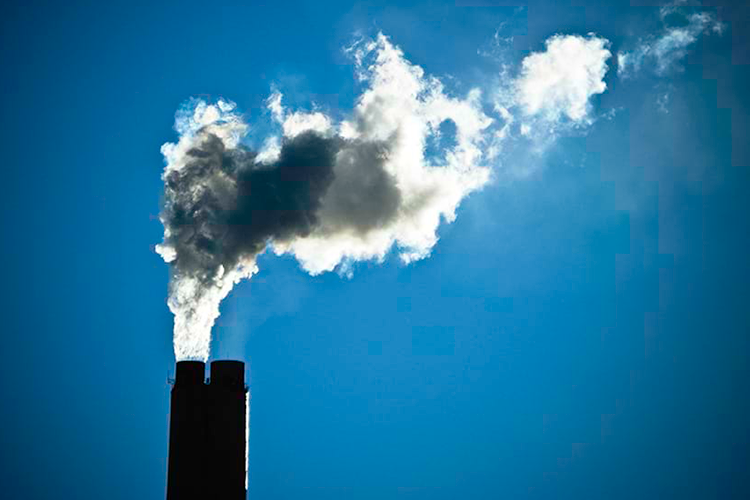Election analysis: Ireland’s largest parties receive failing grade for climate policies
Posted 25 November, 2024

The largest political parties in Ireland have failed to make the grade according to a new report scoring pledges on climate action ahead of the 2024 General Election.
An independent evaluation of each election manifesto, commissioned by the Friends of the Earth Ireland, has scored the three biggest parties, Fine Gael, Fianna Fail and Sinn Fein, joint fifth, all with a failing E grade.
Labour emerged as the party with the best climate action, awarded an A rating, while the Social Democrats took second place with an A- and the Green Party came third with a B, followed by People Before Profit with a score of C. Aontú and Independent Ireland came last with a G.
The analysis, conducted by (opens in a new window)Dr Cara Augustenborg, UCD School of Architecture, Planning and Environmental Policy, Professor Hannah Daly, University College Cork, and Professor Mary Murphy, Maynooth University, found that only the smaller parties had integrated climate action comprehensively into their manifestos.
We commissioned (opens in a new window)@UCDEarth to coordinate an independent assessment of all 9 party manifestos on 5 key planks of faster and fairer climate action
— Friends of the Earth (@foeireland) (opens in a new window)November 25, 2024
Labour came top, Soc Dems 2nd, Greens 3rd. Alarmingly, the 3 parties vying to provide the Taoiseach all failed.(opens in a new window)https://t.co/bdIGHix749
Larger parties such as Fianna Fáil, Fine Gael, and Sinn Féin presented fragmented or limited approaches, according to the General Election 2024 Manifesto Analysis for Faster and Fairer Climate Action report.
Focusing on five core areas of leadership, homes, energy, transport, and food, it concluded that Ireland’s largest parties have yet to “embrace the transformative climate policies necessary to meet national and international climate goals and targets”.
“This process was illuminating and gave insight into the coherence of each party’s engagement with the existential climate challenge. Parties who did best committed to systematic, ambitious, high-level interventions with significant impact,” noted the judges.
“Their policies delivered both ecological and social outcomes and promised the necessary investment in state and institutional capacity to deliver on targets.
“Larger political parties need to take a close look at what the smaller, transformative parties propose and follow suit if they intend to make Ireland a resilient, competitive, and healthy place to live and work.”
Key Findings Across Policy Area
- Leadership and Accountability: Labour’s proposal for a Minister for Future Generations exemplified an innovative, long-term approach to embedding sustainability within government structures. Similarly, the Green Party highlighted community engagement as a cornerstone of their leadership vision. However, larger parties lacked concrete plans to meet Ireland’s carbon budgets in the critical years leading to 2030.
- Renewable Energy: Smaller parties, particularly Labour and People Before Profit, made strong commitments to phasing out fossil fuels and prioritising renewable energy for households. By contrast, larger parties focused narrowly on expanding renewable energy capacity without addressing the need to eliminate fossil fuel infrastructure.
- Transport: Innovative proposals like the “Climate Ticket” put forward by Labour and the Green Party highlighted opportunities to make public transport more affordable and reduce car dependency. However, larger parties lacked a coherent vision for transitioning to fossil-free transport, with limited policies to support active travel and public transport expansion.
- Warm Homes: The Labour Party and Social Democrats led the way in prioritising energy-efficient retrofitting for vulnerable communities. In contrast, Aontú and Sinn Féin provided no substantive policies to address housing energy efficiency, a critical component of reducing emissions and energy poverty.
- Agriculture: The Social Democrats and Labour presented detailed strategies to support family farmers while reducing emissions and restoring biodiversity. Larger parties, however, avoided confronting carbon-intensive farming practices, reflecting a reluctance to embrace transformative reform in this sector.
The report assessed the extent to which Ireland’s nine main political parties were prepared to tackle the twin crises of climate change and biodiversity loss.
As part of the evaluation, in order to show their commitment to deliver on Ireland’s climate pledge, political parties had to prioritise climate and nature across their manifesto, as well as providing credible, practical, and detailed plans to deliver faster and fairer emissions cuts.
“The evaluation underscores the urgency of climate action in Ireland and the need for systemic, forward-thinking leadership,” said (opens in a new window)Professor Eoin O’Neill, Director of the UCD Earth Institute.
“Political parties must see climate and environmental policies as central to building a fairer, more resilient society. The next government has an opportunity – and a responsibility – to place sustainability at the heart of its agenda.
"By highlighting the strengths and weaknesses in party manifestos, this analysis by the UCD Earth Institute’s independent research group provides a roadmap for a sustainable and equitable future. For Ireland to meet its climate pledges, bold leadership and integrated policies must become the norm not the exception.”
By: David Kearns, Digital Journalist / Media Officer, UCD University Relations
To contact the UCD News & Content Team, email: newsdesk@ucd.ie






